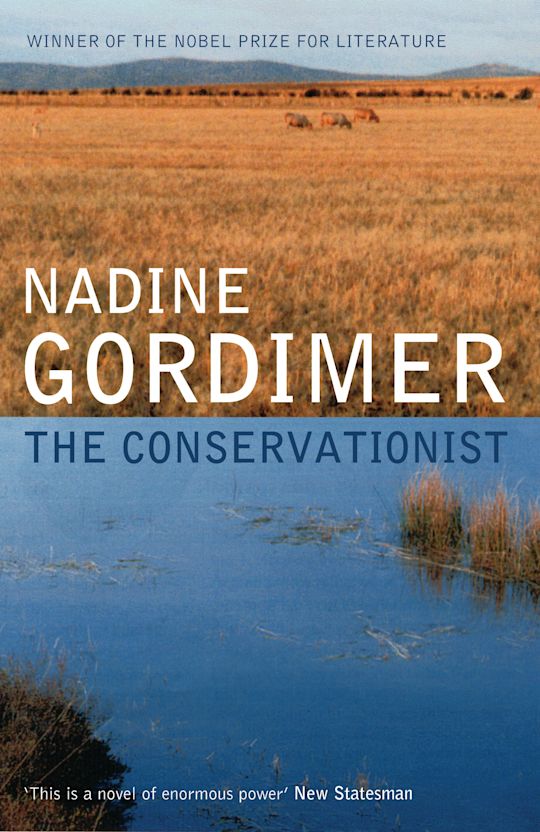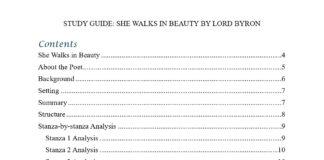Quality UTME Lessons for Art Students
Individual and group classes • Student-friendly rates
📞 Contact Ayomiposi on WhatsApp now
Overview
The Conservationist by Nadine Gordimer is a novel that falls under the genre of psychological realism. Set in the 1960s, the story takes place in Transvaal, South Africa. It was first published in 1974.
The main characters in The Conservationist include Mehring, the protagonist, who is a wealthy South African industrial executive. Antonia Mancebo is Mehring’s mistress, while Terry is his son. Jacobus serves as the black chief herdsman on Mehring’s farm, and Bismillah is an Indian shop owner near the farm.
Plot Summary
In The Conservationist, Nadine Gordimer abandons the conventional narrative style in an effort to unravel the personality of her protagonist, Mehring. The story is a character study of a successful South African industrial executive and, by extension, a critique of South Africa. Gordimer uses searching monologues to probe deeply into Mehring’s character, permitting Mehring to reveal himself by invoking flashbacks, memories, and the stream of consciousness.
Geographically, the point of reference is Mehring’s four-hundred-acre farm, where most of the action takes place. There Mehring is observed by the reader in relation to the human and physical landscape. Psychologically, the reference point is Mehring himself. His varied relationships with lovers, friends, and family establish the basis and define the scope of the story.

The novel begins with the discovery by black workers of a dead man on the farm. He is anonymous; no one knows anything of the details of his death, and no one disturbs the body. There he lies, abandoned, yet never entirely forgotten. Gordimer then uses the narrative to expose the shallowness and, what is more, the rootlessness of Mehring’s life. There is little sustained action. What holds the story together is the life of the farm, where the reader slowly comes to know Mehring. Mehring’s black laborers go about their work whether he is there or not. His Boer neighbors remain aloof, suspicious of a rich, amateur “city” farmer, and his lover provokes him with her idealistic, liberal views. The Conservationist, therefore, is a psychological novel, and, as such, it is an expression of the consciousness of Mehring.
Meanwhile, the recurring image of the dead man in a remote corner of the farm remains a symbol, a portent of Mehring’s future and, possibly, that of South Africa.
Characterisation in The Conservationist
In Mehring, Gordimer has created a protagonist who dominates the story. Mehring is a calculating businessman, much of whose life is spent traveling abroad, from continent to continent, peddling the pig iron which has made him rich. Yet the attending associations of industrial South Africa are never made explicit. Gordimer never allows the reader to witness the conditions of work for labor or management. It is Mehring himself, not the creation of wealth, with which the author is concerned.
Corporate business, for Mehring, is clinical, a means to a material end. Mehring is not, however, a passionless character. Sexual desire is a strong impulse for him. Handsome and affluent, Mehring pursues women of every sort, whether his mistress or a friend’s young daughter or an anonymous teenage passenger on a plane.
Apart from women, Mehring’s chief enjoyment is his farm. Located near the city, the farm is easily accessible, and Mehring spends almost every weekend there. Originally, the farm was bought for tax purposes, but Mehring soon becomes absorbed in the farm’s maintenance, believing that good land ought to be used productively. Though he learns much about agriculture and husbandry, Mehring is only a weekend farmer; he has familiarized himself with the land, yet he remains, in a real sense, a stranger.
The other characters of the novel are less well developed. Mehring’s mistress, curiously, is a liberal, antiestablishment figure, occasionally in danger of arrest by the police. Their improbable relationship is both governed and limited by sexual desire.
Every day of every week, Jacobus, the black chief herdsman, tends to the farm’s needs, oils the tractor, and looks after the cattle and machinery. He is more committed to and more in touch with the land than Mehring is, yet Jacobus never disputes the latter’s claim to ownership.
Mehring’s son, Terry, is away at boarding school. He is caught in an emotional struggle between his father, who expects him to remain at school in South Africa, and his mother, who wants Terry to move to New York where she lives. If Terry remains in South Africa, he will be required to submit to compulsory military service. Inferentially, his mother realizes that the longer her son remains in South Africa, the less likely he is ever to leave his native land.
In The Conservationist, Nadine Gordimer has produced one of the most powerful characters in South African literature. She has been praised for penetrating to the heart of her protagonist more poignantly and more skillfully, perhaps, than any man could have done. For many critics, Gordimer has succeeded precisely because she focuses on Mehring’s desires, emotions, and fantasies, so that Mehring, it seems, slowly reveals himself to the reader. Other characters are subordinate to Mehring and are used to shed light on his personality. Carefully attending to the psychological drama of an individual man, Gordimer nevertheless is able to draw the reader’s attention to the state of mind of South Africa as a whole. Perhaps, this is the author’s most enduring achievement.

Themes in The Conservationist
Mehring’s world is an introspective one. Divorced from wife, detached from son, he lives within himself. He is involved with the outside world, enjoying financial and social success, yet no one truly knows him. Mehring, above all, seeks to keep his distance from those near to him.
Mehring is also at odds with those who are near to him: with his mistress, who dreams of using Mehring’s money to reshape society, and with Jacobus, who maintains the precious farm Mehring enjoys only on weekends. Mehring is committed to preserving his way of life, not least of all, perhaps, because he sees no alternative. Mehring, the conservationist, is a symbol of the fortress mentality of South African white society.
Having chosen to maintain his distance emotionally from the people around him, Mehring depends more and more on taking his pleasure wherever he can find it. Indeed, he is one of life’s takers, profiting not only from the sale of pig iron but also from the sexual favors of the women he seduces. He has no interest in altering a world, whatever its iniquities, that he accepted long ago on its own terms. Revolutionary change is not so much anathema to him as it is pointless.
In the end, it is the farm which takes on meaning for Mehring. It is satisfying to walk the fields and feel the earth under one’s feet. The fact remains, however, that Mehring is only a weekend visitor. He may own the land, but others five there and work it.
Receive Literary Updates through our Social Media Channels:
- WhatsApp: Literature PADI
- Telegram: Literature PADI
- YouTube: @literaturepadi
- Facebook: Literature PADI









